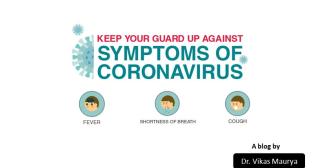
Why Asthma Symptoms Often Worsen at Night And What to Do About It
For people living with asthma, managing symptoms is a part of daily life. But as the sun sets and the world quiets down, a different kind of challenge often begins. Many individuals find that their asthma symptoms; the coughing, wheezing, chest tightness, and shortness of breath; become significantly more severe during the night. This frustrating and often frightening experience is known as nocturnal asthma.
Waking up from a deep sleep because of an intense asthma cough at night or a persistent wheezing cough at night is not just disruptive to your rest; it's a sign that your asthma is not as well-controlled as it could be. Understanding why asthma at night often worsens is the first step toward taking control and achieving peaceful, uninterrupted sleep. This guide will explore the complex reasons behind this common phenomenon and provide practical strategies to manage and prevent it.
What Is Nocturnal Asthma?
Nocturnal asthma is not a separate type of asthma. Rather, it is a common pattern where asthma symptoms become more pronounced during the nighttime hours, typically between midnight and 4 a.m. This can happen to anyone with asthma, regardless of whether their daytime symptoms are mild, moderate, or severe. The increase in symptoms at night is a signal of underlying inflammation and airway sensitivity that is influenced by a variety of factors that come into play when we sleep.
The Key Reasons Why Asthma Worsens at Night
The flare-up of asthma symptoms at night is not caused by a single trigger but by a complex interplay of our body's natural rhythms, our sleeping environment, and our posture.
1. The Body's Internal Clock (Circadian Rhythms)
Our bodies run on a 24-hour internal clock that regulates our sleep-wake cycle, hormone levels, and many other bodily functions. At night, this natural rhythm causes several changes that can worsen asthma:
- Hormonal Shifts: Levels of certain hormones, like cortisol and epinephrine, which help reduce inflammation and keep airways open, naturally decrease while we sleep. This dip can lead to increased airway inflammation and constriction.
- Increased Histamine: At the same time, the body's production of histamine, a chemical involved in allergic reactions and inflammation, tends to increase at night, further contributing to airway narrowing.
2. Environmental Triggers in the Bedroom
Your bedroom, which should be a sanctuary for rest, can harbor a high concentration of asthma triggers.
- Dust Mites: These microscopic creatures thrive in bedding, pillows, mattresses, and carpets. Lying down for hours puts you in close, prolonged contact with them, which can trigger an allergic reaction and a night time cough asthma attack.
- Pet Dander: If pets are allowed in the bedroom or on the bed, their dander (dead skin flakes) can be a potent trigger.
- Mold: Mold spores can grow in damp areas, such as in an attached bathroom or around window frames, and can easily become airborne.
3. The Reclined Sleeping Position
The simple act of lying down can physically affect your breathing.
- Increased Mucus: When you lie down, mucus can pool in your airways more easily, leading to coughing and airway irritation.
- Reduced Lung Volume: Lying on your back can slightly decrease your lung capacity and increase the resistance in your airways.
- Pressure on the Chest: For some individuals, especially those with obesity, the weight of the abdomen can put pressure on the diaphragm, making it harder to take deep breaths.
4. Cooler Air
The air temperature in a bedroom often drops during the night. Breathing in cooler, and often drier, air can be irritating to sensitive airways, causing them to constrict and triggering a wheezing cough at night.
5. Acid Reflux (GERD)
Gastroesophageal Reflux Disease is a condition where stomach acid flows back into the esophagus. When you lie down, it is much easier for this acid to travel up into the throat and even be inhaled in tiny amounts into the lungs. This acid is highly irritating and can trigger a significant inflammatory response in the airways, leading to a persistent asthma cough at night.
Strategies for Managing and Preventing Nocturnal Asthma
The good news is that you can take several effective steps to control your nighttime symptoms and improve your sleep.
Optimize Your Asthma Action Plan: This is the most important step. Work with your doctor to ensure your asthma is well-managed overall. This may involve adjusting the dosage of your controller medication or changing the timing of when you take it. Your doctor needs to know that your symptoms are worse at night.
Create an "Asthma-Safe" Bedroom:
- Use allergen-proof covers on your mattress, box spring, and pillows.
- Wash all bedding in hot water at least once a week.
- Remove carpeting if possible, or vacuum frequently with a HEPA filter vacuum.
- Keep pets out of the bedroom.
- Use an air purifier with a HEPA filter to remove airborne allergens.
- Maintain a consistent, comfortable temperature and consider using a humidifier if the air is very dry.
Adjust Your Sleeping Position: Try sleeping with your head and shoulders elevated. Using a wedge pillow or raising the head of your bed can help reduce mucus pooling and minimize acid reflux.
Manage GERD: Avoid eating large meals or trigger foods (like spicy or fatty foods) within three hours of bedtime. Talk to your doctor about medications to control acid reflux if it is a persistent problem.
Time Your Evening Activities: Avoid strenuous exercise close to bedtime, as it can sometimes trigger symptoms later.
When to See a Doctor
A night time cough asthma attack is more than just an inconvenience; it's a sign that your asthma control needs to be improved. You should see your doctor if:
- You are waking up with coughing, wheezing, or shortness of breath more than once a week.
- You are using your quick-relief (rescue) inhaler more than two nights a month.
- Your nighttime symptoms are leaving you feeling tired and fatigued during the day.
Reclaiming Your Rest
Living with asthma at night can be exhausting, but it is not something you have to accept. By understanding the reasons behind your symptoms and working proactively with your healthcare provider to address them, you can create a plan that works. Through a combination of medical management and simple environmental changes, you can breathe easier, sleep more soundly, and reclaim your nights.
Frequently Asked Questions
1. Why is my child's asthma cough worse at night?
The same factors that affect adults; circadian rhythms, allergens in bedding, and postnasal drip from a cold; also affect children, and often more intensely.
2. Can sleeping with the window open make my asthma worse?
It depends. If you have pollen allergies, an open window can let in triggers. However, if the air outside is cool and clean, it might be beneficial for some.
3. What is the best position to sleep in during an asthma attack?
During an attack, it is best to sit upright. This position helps open your airways as much as possible. Do not lie down.
4. Can food allergies trigger nocturnal asthma?
Yes, a delayed reaction to a food allergen consumed earlier in the day can sometimes manifest as nighttime asthma symptoms.
5. Is a wheezing cough at night always asthma?
While it is a classic symptom of nocturnal asthma, other conditions like heart failure or acid reflux can also cause nighttime wheezing. It's essential to get an accurate diagnosis from a doctor.



















